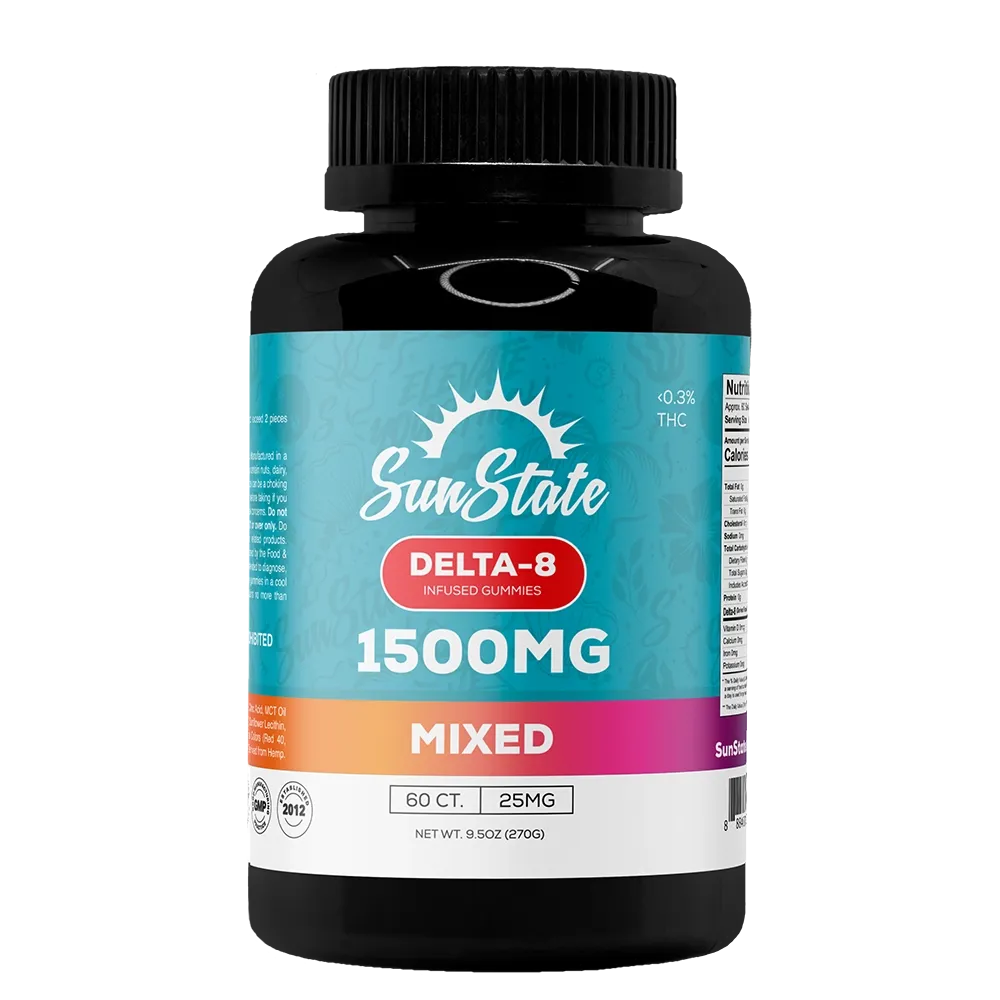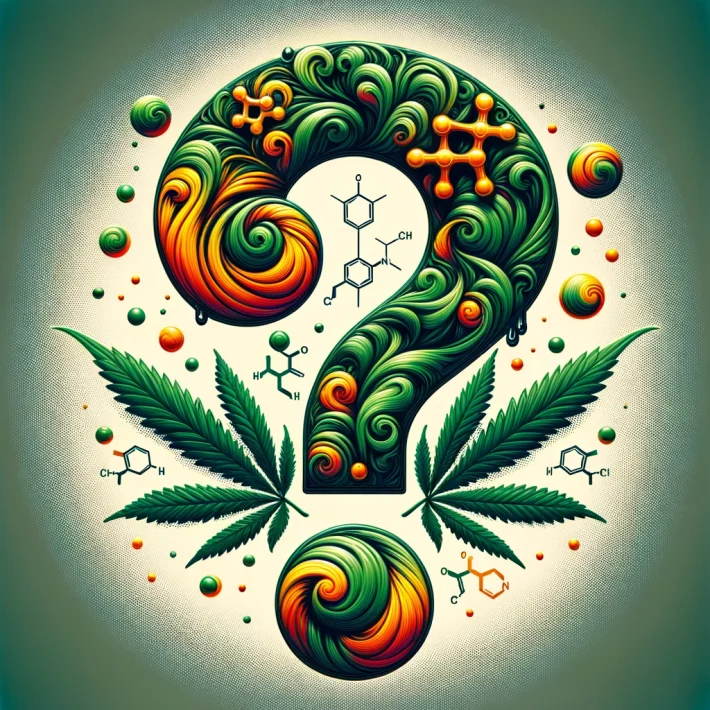Delta-8 tetrahydrocannabinol (Delta-8 THC) is gaining popularity as a legal alternative to traditional cannabis products. Known for producing a smoother, milder high compared to Delta-9 THC, Delta-8 is often marketed as “diet weed” or “weed light.” But with its rise in use comes important questions: How long does it stay in your system? Will it show up on a drug test? Is it safe?
This guide will help you understand Delta-8 THC, its detection in drug tests, legal considerations, and safe alternatives for those who want the benefits of hemp without the psychoactive effects.
How Delta-8 THC Works
Delta-8 THC is a cannabinoid found in small amounts in the cannabis plant. Chemically, it is almost identical to Delta-9 THC, which is the main psychoactive compound in marijuana. Both cannabinoids interact with the endocannabinoid system (ECS), a network of receptors in the body that regulates mood, sleep, appetite, and pain perception.
The difference lies in potency: Delta-8 binds slightly differently to cannabinoid receptors, producing a more subtle, less intense high. Most Delta-8 THC products sold over the counter, however, are not extracted directly from cannabis; they are synthesized from hemp-derived CBD through chemical processes.
Types of Drug Tests and Delta-8 Detection
Delta-8 THC can produce metabolites that are chemically similar to Delta-9 THC metabolites (THC-COOH). This means that standard drug tests may detect Delta-8 THC use.
Common types of drug tests include:
- Urine tests: Detect THC metabolites for 2–30 days depending on frequency of use, dose, and body fat.
- Blood tests: Typically detect recent THC use within 12–48 hours.
- Saliva tests: Detect THC for a few hours up to 24 hours.
- Hair follicle tests: Can detect THC for up to 90 days after use.
Key takeaway: Even though Delta-8 is legal in many states, it may trigger a positive drug test just like Delta-9 THC.
Factors Affecting How Long Delta-8 Stays in Your System
- Frequency of Use: Regular users may accumulate THC metabolites, extending the detection window.
- Product Potency: Stronger Delta-8 products may linger longer in fat cells.
- Body Composition: THC is fat-soluble, so individuals with higher body fat may retain metabolites longer.
- Metabolism: Faster metabolism can reduce the time THC stays in the system.
Safety Considerations
Delta-8 THC products are largely unregulated, which raises several safety concerns:
- Residual chemicals from the CBD-to-Delta-8 conversion process may remain in the product.
- Contaminants like pesticides, heavy metals, and mold have been detected in some products.
- Dosage labeling is often inaccurate, increasing the risk of overconsumption.
Advice: Purchase Delta-8 from reputable, lab-tested sources and avoid unregulated online products.
Legal Status of Delta-8 THC
Delta-8 exists in a legal gray area:
- Federally, hemp-derived cannabinoids with less than 0.3% Delta-9 THC are legal under the 2018 Farm Bill.
- The DEA has stated that synthetically derived THC may be illegal. Because most Delta-8 is chemically synthesized from CBD, legality can vary.
- Over 15 states have banned or restricted Delta-8 THC sales, while others allow it under regulated dispensary systems.
Tip: Always check your state laws before purchasing Delta-8 products.

Safe THC-Free Alternatives
For individuals subject to drug testing or concerned about Delta-8 safety, THC-free hemp products are a viable option:
- CBD Gummies: Offer calming effects without psychoactive properties.
- CBD Tinctures (Broad Spectrum or Isolate): Fast-acting and THC-free.
- CBD Capsules: Convenient and pre-measured.
- CBD Topicals: Targeted relief for muscles and joints.
- CBD Pet Products: THC-free options for pet wellness.
FAQ: Delta-8 THC
1. Will Delta-8 THC make me high?
Yes, but the high is typically milder than Delta-9 THC.
2. Can Delta-8 THC cause a positive drug test?
Yes. Standard drug tests detect THC metabolites that Delta-8 produces.
3. Is Delta-8 THC safe?
Safety is uncertain due to the lack of regulation and possible contaminants. Use only lab-tested products.
4. How long does Delta-8 THC stay in the system?
Depending on frequency, dose, and body composition, it can stay detectable from a few days to 30+ days.
5. Is Delta-8 THC legal?
It depends on state law. Federally, hemp-derived Delta-8 is legal, but some states have banned or restricted its sale.
6. What is the difference between Delta-8 and Delta-10 THC?
Delta-10 is completely synthetic and not naturally occurring, while Delta-8 exists naturally in small amounts in cannabis.
References
- Babalonis, S., et al. (2021). Δ8-THC: Legal Status, Widespread Availability, and Safety Concerns. Pharmacology Biochemistry and Behavior. https://pubmed.ncbi.nlm.nih.gov/34662224/
- Abdel-Kader, M. S., et al. (2024). Chemistry and Pharmacology of Delta-8-Tetrahydrocannabinol. Molecules. https://pmc.ncbi.nlm.nih.gov/articles/PMC10976172/
- Tagen, M., et al. (2022). Review of delta-8-tetrahydrocannabinol (Δ8-THC): Comparative pharmacology with Δ9-THC. British Journal of Pharmacology. https://pubmed.ncbi.nlm.nih.gov/35523678/
- Shaker, K., et al. (2023). Delta-8-Tetrahydrocannabinol Exposure and Confirmation in Urine Drug Testing. Journal of Analytical Toxicology. https://pmc.ncbi.nlm.nih.gov/articles/PMC10050257/
- Satybaldiyeva, N., et al. (2025). U.S. State Marijuana and Delta-8-Tetrahydrocannabinol Policies and Their Impact on Use. American Journal of Preventive Medicine. https://www.ajpmonline.org/article/S0749-3797(25)00504-5/fulltext
- Helander, A., et al. (2022). Analytical and medico‐legal problems linked to the presence of delta-8-THC in urine drug testing. Drug Testing and Analysis. https://analyticalsciencejournals.onlinelibrary.wiley.com/doi/10.1002/dta.3190
- Ledvina, K. R. (2023). Delta-8-tetrahydrocannabinol: a phytocannabinoid on the rise. Research in Social and Administrative Pharmacy. https://academic.oup.com/rpsppr/article/2/3/rqad031/7273867
- Nali, M. C., et al. (2024). Assessing Characteristics and Compliance of Online Delta-8-THC Products. Journal of Cannabis Research. https://pmc.ncbi.nlm.nih.gov/articles/PMC11386993/
- Cary, P. L. (2023). Delta-8 THC and Drug Testing in Treatment Courts. All Rise. https://allrise.org/wp-content/uploads/2023/05/Delta-8-Fact-Sheet.pdf
- Sharma, V., et al. (2023). Assessing the Detectability of Cannabinoid Analogs in Urine Drug Tests. Forensic Science Review. https://scholarscompass.vcu.edu/cgi/viewcontent.cgi?article=1059&context=frsc_projects
- U.S. Drug Enforcement Administration. (2022). 5 Things to Know About Delta-8 Tetrahydrocannabinol. https://www.dea.gov/press-releases/2022/01/13/5-things-know-about-delta-8-tetrahydrocannabinol
- U.S. Drug Enforcement Administration. (2022). Implementation of the Agriculture Improvement Act of 2018. https://www.dea.gov/press-releases/2022/01/13/implementation-agriculture-improvement-act-2018
- Turner, A. R., et al. (2024). Marijuana. StatPearls. https://www.ncbi.nlm.nih.gov/books/NBK538356/


